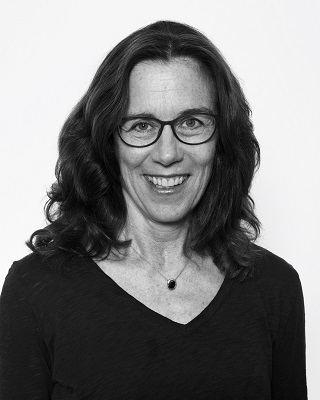Professor Susan Hespos | Director, Impact and Engagement
 | Professor of Infant Studies, Leader of BabyLab, Director of Impact and Engagement Ground-breaking science on how babies discover life around them.As leader of BabyLab, Professor Susan Hespos runs a research program on understanding the earliest evidence of cognitive capacities in infancy and what changes during development. |
Overview
Developmental psychologist Professor Hespos is on a mission to show that babies think before they speak.
She runs BabyLab, the foremost infant research laboratory in Australia that conducts research with infants and children focusing on language acquisition, cognitive development and learning.
Historically, it was thought that infants are born with a relatively blank slate and knowledge is constructed through interactions between the infant and the environment. In this approach, the task for the young infant is to construct reality by gaining experience.
But Professor Hespos champions a different position in her work, called core knowledge. The key tenet of this approach is that underneath all the things that vary across humans, there exists a set of perceptual and conceptual capacities that are common.
My job is to convince parents that their babies are smart.
Professor Hespos’ research focuses on early conceptual abilities, and how early thinking lays the foundation for adult reasoning.
She uses a variety of methods to ask pre-verbal infant questions and investigate what infants understand about their world and the first links between words and concepts.
This information sheds light on the basic principles that guide cognition and learning, not only in infants, but throughout the lifespan.
Her research aims to specify the nature of thinking in young infants to advance understanding of two things: how language may capitalise on pre-existing cognitive abilities, and how these abilities relate to the cognitive abilities of other species.
Impact
Professor Hespos’ work has had a large impact on the field of academic research. It has implications for health, education, policy around child welfare and even computer science, as Professor Hespos has shown there are connections between artificial intelligence and infant cognition.
More broadly, every parent is interested in how their baby grows and this research provides those answers.
The plight of developmental psychology is to prove what every grandparent knows to be true. The fun part of my job is that I get to play with babies and when they cry or need to be fed, I give them back to their parents.
Professor Hespos’ research has demonstrated that guided play can advance cognitive skills (like language and reading), social skills (like emotion regulation), and quantitative skills (like maths and spatial reasoning).
She has shown that simple everyday interactions with young children like describing objects seen during a walk or bus ride, singing songs, or telling stories can build their vocabularies, prepare them for school, and lay a strong foundation for lifelong learning.
Translating these scientific results to parents can help them raise successful children. Professor Hespos’ work is part of Playful Learning Landscapes, an international effort that engages low-income community stakeholders to reimagine spaces as learning opportunities outside of formal school environments.
Professor Hespos’ research has garnered considerable media attention. The research is currently featured in the Netflix docuseries Babies (What Babies Know, season 2, episode 1).
Career
Professor Hespos has been employed as a full-time academic for more than 25 years.
After graduating in 1996, she obtained a competitive grant from the National Institute of Health (NIH) to do postdoctoral research at the University of Illinois at Urbana-Champaign, USA, with Renee Baillargeon. After two years, she moved to a postdoctoral position at Massachusetts Institute of Technology with Elizabeth Spelke.
When her NIH funding concluded, she received a competitive McDonnell-Pew Junior Scientist Research Award. She was hired as an Assistant Professor at Vanderbilt University, USA, from 2001 – 2005.
Since 2005, she has worked at Northwestern University, Illinois, USA. During that time, she has held the ranks of Assistant, Associate, and Full Professor in the Department of Psychology.
Since 2020, Professor Hespos has held a partial appointment at Western Sydney University as leader of MARCS BabyLab.
She has been recognised with research, teaching and leadership. These include 15 years of research funding from National Science Foundation. She received three different awards from undergraduate societies for her enthusiasm and dedication to undergraduate teaching. She was awarded a fellowship from Northwestern’s business school (Kellogg) for management skills for innovative university leaders.
Through her lab, she has mentored countless graduate and undergraduate students. The lab is a supportive environment for typically underrepresented populations. By working in the lab, students receive first-hand experience with research and earn strong recommendation letters that help them launch their careers.
Professor Hespos has contributed key service roles. She served as an Associate Editor at Developmental Psychology and currently serves as Associate Editor for Cognitive Psychology. In addition, she serves on grant panels for the National Science Foundation and Spencer Foundation. At Northwestern, she has served three-year terms as Director of Graduate studies and Director of the Cognitive Division. In addition, she has served on the tenure and promotion committees.
Key outputs
- Do infants understand simple arithmetic? A replication of Wynn (1992) TJ Simon, SJ Hespos, P Rochat - Cognitive development, 1995
- Conceptual precursors to language. SJ Hespos, ES Spelke Nature 430 (6998), 453-456
- Netflix series Babies
- Nonhuman primate vocalizations support categorization in very young human infants. AL Ferry, SJ Hespos, SR Waxman. Proceedings of the National Academy of Sciences 110 (38), 15231-15235
- Five-month-old infants have different expectations for solids and liquids. SJ Hespos, AL Ferry, LJ Rips. Psychological Science 20 (5), 603-611
Connect
| s.hespos@westernsydney.edu.au | |
| Location | Western Sydney University Westmead campus |
| Room | U.4.16 |






